Find out all of the information about the Teledyne Tekmar product: volatile organic compound sampler Atomx. Contact a supplier or the parent company directly to get a quote or to find out a price or your closest point of sale.
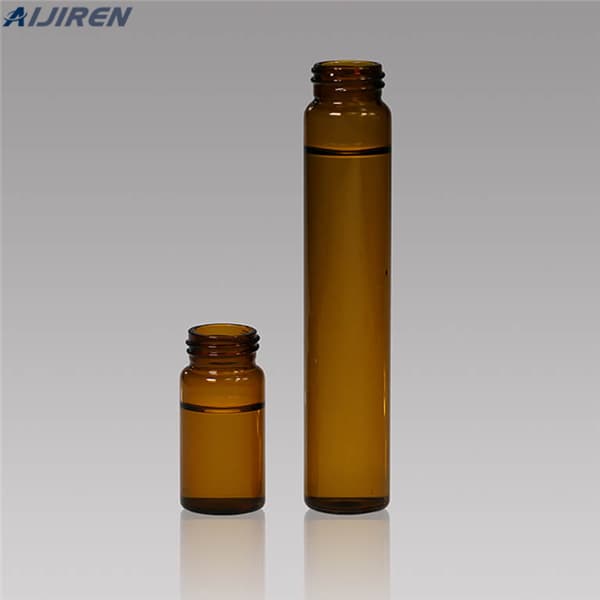
This kind of cap is often used in headspace vials, and the center hole with it is very convenient for sampling by autosampler. 18mm Screw Magnetic Precision Caps for GC Vials The optional capacity is 10ml 20ml and the specifications are 22.5 x 46mm, 22.5
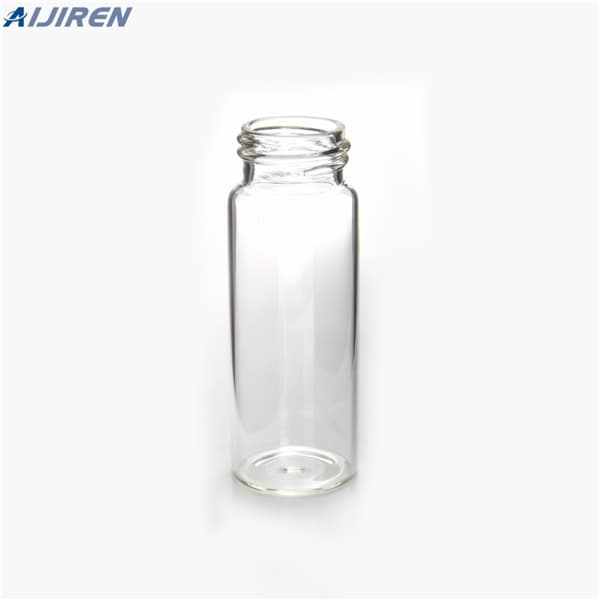
8-60mL EPA Storage Vials Appcation: VOA vials are specifically designed lor use with volatile organic compounds.They are available in both clear and amber borosilicate glass and have a temperature range of -40°C to 125 °C
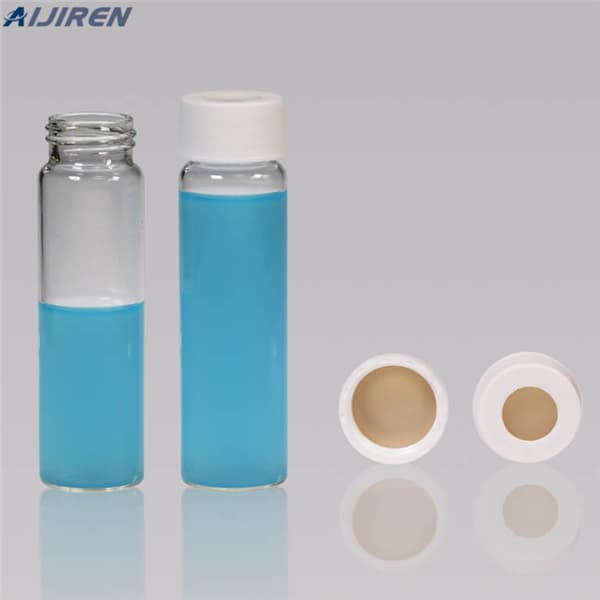
A static headspace GC-FID method for trace analysis of volatile organic compounds (VOCs) in waters Z. A. Mustafa*, R. S. Milina Central Research Laboratory, Prof. Assen Zlatarov University – Burgas, Bulgaria Received October 31, 2018; Revised December
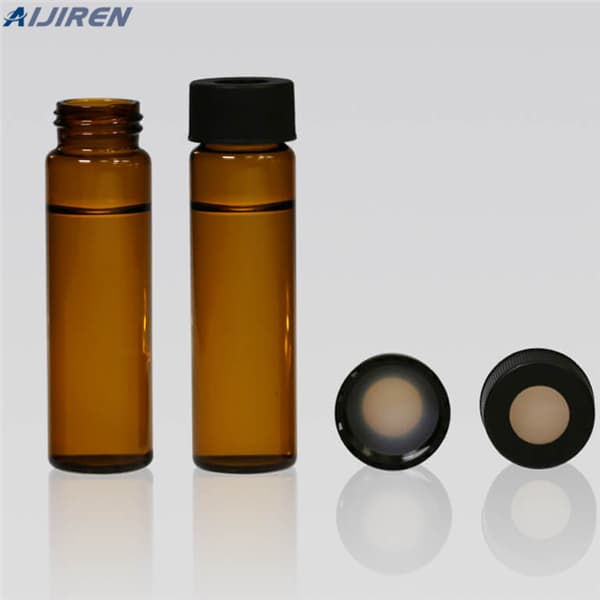
Volatile organic compounds (VOCs) are one of the most commonly detected contaminants in water. The occurrence is mainly in gasoline and other petroleum-based products, fumigants, paints and plastics.

The infusion analysis collects a 2-min reference signal from the loading pump using a 50:50 water:leach solvent with 0.5% formic acid. After the 2-min reference, the injection loop was pulsed into the infusion stream for a full scan acquisition (100 to 1000 amu) under positive electrospray.

The present work was focused to evaluate the ability of microbial strains to grow on volatile organic compounds, therefore the level of contaminant was kept constant, at 0.1 % (v/v), for all experiments on single or mixture substrates. The first step was to cultivate

Two 40 mL vials are provided in the kit for each sample site, along with two sample labels. The sample should be collected prior to chlorination. Stabilize the water temperature and output by running the water for about 10 minutes at a low flow of approximately 1 pint per minute.

2002/6/1 · The occurrence of volatile organic compounds (VOCs) was studied in river water, lake water, seawater and treated wastewater in Greece from October 1998 to September 1999. The determination of 41 VOCs was performed with a Purge and Trap–Gas Chromatography–Mass Spectrometry method. Samples were collected seasonally from 10 rivers, seven lakes, three
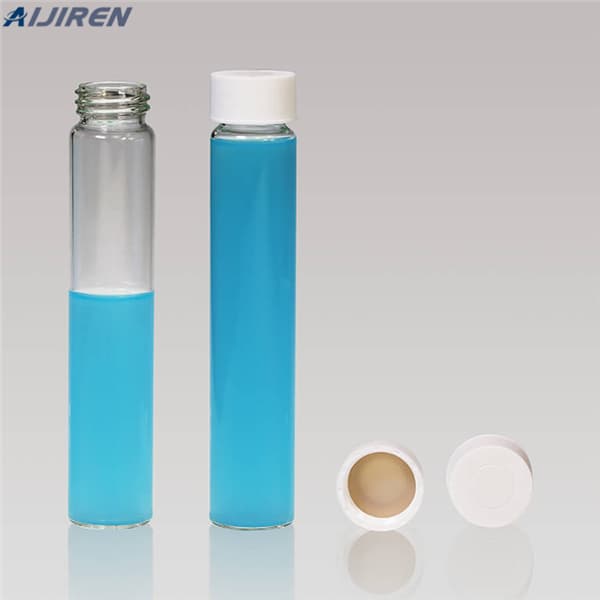
Selected Ion Flow Tube Mass Spectroscopy (SIFT-MS) is an innovative option for measuring volatile chemicals in air for environmental (indoor and outdoor) and food product applications. It can also measure volatile chemicals produced from any matrix (soil, water, solids). SIFT-MS is exclusive to Analytica. In one simple analysis, SIFT-MS can rapidly
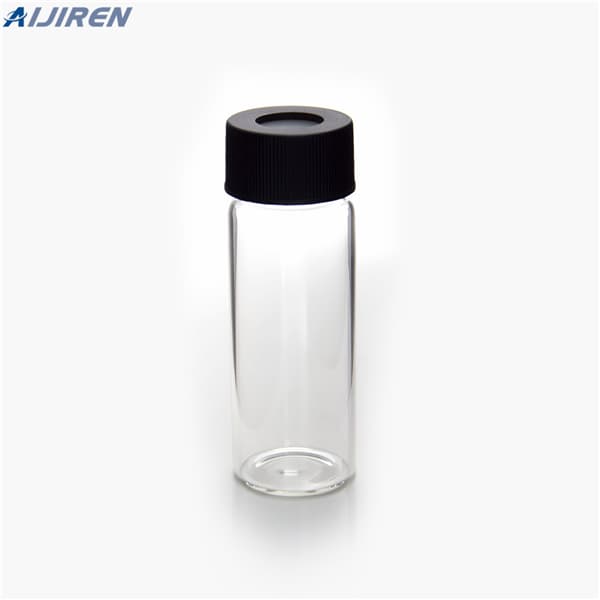
Water samples should be taken in the appropriate volatile organic analysis vials with no headspace. Transfer should then be carried out from those sample vials to the headspace vials using a gas- tight syringe avoiding the use of pipettes.

40 mL Septa Vials. I-Chem. Certified to contain <50 ppb Total Organic Carbon Standard 40 mL septa vial is clear borosilicate glass with 0.125 in. thick, I-CHEM blue, PTFE/silicone septa in an open-top 24-414 polypropylene cap. The I-CHEM molded-in septa retainer ring holds the septa securely in place without.

8-425 Standard Screw Thread Vials 9 mm Wide Mouth Screw Thread Vials Pre-Loaded Inserts in 11 mm Autosampler Vials 11 mm Wide Mouth Snap Vials 11 mm Standard Crimp Vials 11 mm Wide Mouth Crimp Vials

2008/9/25 · Relative accuracies of the methods involving collection of water samples in volatile organic analysis vials and 0.5‐L Tedlar bags were greater than 20%. Relative accuracies of the methods involving collection of gas samples from the El Paso column in Summa canisters and Tedlar bags were less than 20% when concentrations of these compounds in water were equal to or greater than 50 ppbw.
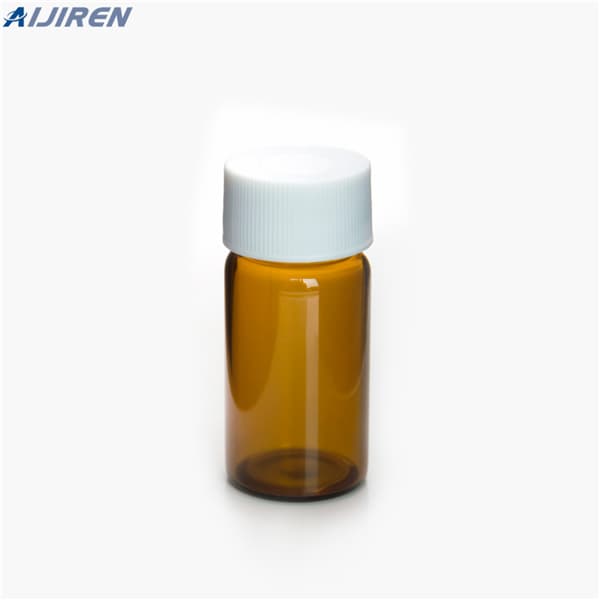
2. Data Acquisition, Analysis and Reporting. Volatiles are monitored in drinking water supplies by environmental regulators as build-ups of toxic organics, nitrosamines and other disinfection by-products (DBPs) can cause widespread damage. Regulatory agencies set threshold limits for volatile organic compounds based on threat, toxicity, and target

